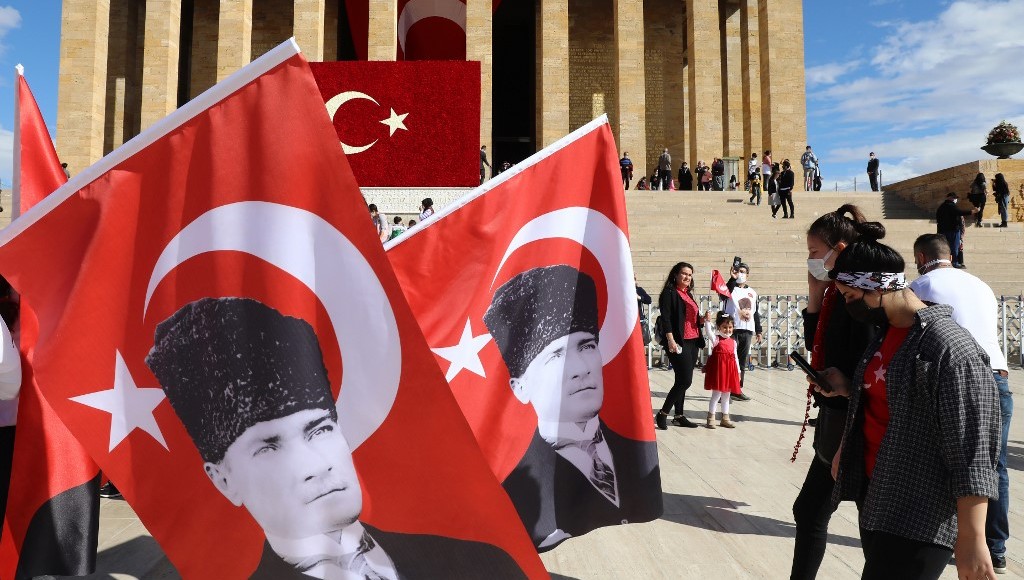Turkey’s centennial of its republic, which was supposed to be a grand celebration, has been very low key, leading to criticism and questions about the Justice and Development Party (AKP) government’s commitment to the nation’s founding principles, according to local media.
Planning for the centennial began three years ago with a presidential decree aimed at enthusiastic celebrations at home and abroad.
However, many of these events were canceled or postponed, with the ongoing conflict in Gaza cited as the reason. Unlike the swearing-in of President Recep Tayyip Erdoğan, which was attended by foreign heads of state, no such international event is planned for the centennial.
Critics claim that the lackluster celebrations reflect an ideological departure from the principles of Mustafa Kemal Atatürk, the founder of modern Turkey. Opposition parties such as the Republican People’s Party (CHP) and the İYİ (Good) Party have criticized the government for the absence of Atatürk commemorations in its programs. Some even interpret the low-key celebrations as a de facto regime change, but the government denies this.
Erdoğan’s communications directorate has countered the criticism by denying that the planned celebrations have been canceled and assuring that the centennial will be celebrated in a manner befitting the “Century of Turkey.”
A MetroPoll survey found that only 11.3 percent of the population supports Turkey’s current stance on the Israeli-Palestinian issue, suggesting that the majority would prefer a more neutral or mediating role. This adds to the debate over whether the Gaza conflict should overshadow the Republic’s centennial celebration.
In response to the government’s approach, opposition parties and municipalities are organizing alternative celebrations. The İstanbul Municipality, led by CHP Mayor Ekrem İmamoğlu, is hosting events to mark the “Century of Democracy,” and the Ankara Municipality, also led by the CHP, has planned “Republic Week.”
